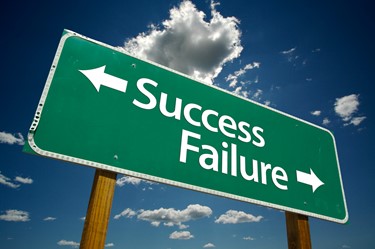Why MSPs Will Live Or Die By Their Service And Support
By Paul Perry, Relay

Why MSPs must put customer experience at the center in the ecosystem economy.
More and more, it’s all about the customer experience.
As products and sectors merge creating new ecosystems, customer experience becomes the main differentiator. Why? Because barriers are increasingly fading for customers and those unseen connections come to define their experiences as consumers.
Just ask the 81 percent of business and technology executives who already see the boundaries blurring between industries as companies are empowered to work together through technology and create interconnected business ecosystems for customers.
It’s no longer about one-to-one customer service touchpoints, it’s now one-to-many. When a customer walks away from even one of these many experiences feeling not well-served, they take their business to a competitor.
That’s why we’re not being extreme when we say that MSPs of today will depend on the quality of their service and support to stay afloat. Here’s a bit more about the challenges that exist for MSPs in the emerging ecosystem economy and why the customer experience is so vital.
Why The Emerging Ecosystem Economy Matters For MSPs
The ecosystem economy is growing for a reason.
All too often, the customer journey is fragmented across silos. It’s frustrating for everyone involved. Customers experience service failures when they reach out for support. MSPs and the brands they serve aren’t able to provide strong, seamless support.
Increasingly, the customer experience relies on how well products or services interact with related devices and services. Competition is driving companies to develop new lines of collaboration with others business serving the same customers.
That’s where MSPs come in.
Alongside their clients, MSPs are building a business ecosystem so that companies can work together to serve customers together. MSPs have the tough task of stitching together all of that customer data, insights, and varying business contexts among their clients.
Doing so provides the seamless experience that customers increasingly crave.
MSPs enable their clients to streamline the customer journey by allowing them to zoom out and perceive the customer’s holistic journey more clearly. There’s also added value in terms of speed and knowledge integration as information is less siloed and agents can more efficiently support customers rather than chasing down the information necessary to provide such support.
Ultimately, the business ecosystems that MSPs stitch together with their clients reduce customer churn and elicit customer loyalty through improved customer experience and support.
Why Customer Service Is Critical For MSPs In The Ecosystem Economy
The technology and services that MSPs provide to retailers comes to define the experience that they, in turn, provide to customers.
Retailers rely on MSPs to support technology that enables them to provide next-level experiences.
Why are such experiences important for customers in the ecosystem economy?
Customers can shop around, so they will seek out better improve customer experiences as they shop. Therefore, the customer experience provided by MSPs becomes the through-line that connects merchant services and merchant tech to the end consumer.
MSPs must consider the broader ecosystem for retailers. Every company and product that coincides with the retailer’s products must be included in this ecosystem. MSPs that can do this in partnership with retailers will stand apart and succeed.
Those unable to do so will increasingly have difficulty maintaining their customer base as they look elsewhere for better customer experiences.
Ecosystems Are Built On Trust
It’s important for MSPs to remember: Trust is the currency of the ecosystems they help maintain for their clients.
This requires a much greater degree of collaboration and transparency than has existed in the past among different companies. It’s a new playing field. In the end, this openness will help all companies within the ecosystem improve the ways they assist customers. The insights gained in this collaboration enrich the overall customer experience, when leveraged the right way.
More tactically, MSPs are helping retailers a few key things:
- A treasure trove of reliable data on customers to enrich the customer experience
- A platform to cooperate with ecosystem partners for mutually beneficial returns (higher revenue, happier customers)
- An additional opportunity to provide renewed utility to customers and deepen emotional connections with them (increasing customer loyalty)
Putting this trust into operations for and with clients is arguably the most critical part of the service that MSPs provide.
Focus On Customer-Centricity And Consumer Intelligence
These are two priorities that can be difficult, but not impossible, to operationalize.
Ensure that the various departments within your MSP that are not customer-facing still have a customer focus. This means that meeting specific deadlines, maintaining delivery time frames, and keeping internal operations streamlined should all be explicitly linked back to customer outcomes. They all have an impact on customer behavior, so this should be a big part of the focus and the metrics for those teams.
In other words, be sure that every team is being customer-centric, regardless of how close they are to the actual customers.
The Future Of Customer Service And Support For MSPs
As we’ve mentioned above, customer service will continue to be a huge difference-maker for MSPs in the future. By focusing a few critical elements in how they support merchants, MSPs can truly succeed in the ecosystem economy.
To do so, they must:
- Invest in the right tools. MSPs can’t provide superior support without the proper tools to get the job done. While these tools are often increasingly complex and costly, the right mix will make the work of delivering excellent customer service simpler and frankly, more possible.
- Equip your team with what they need. As the ecosystem economy grows, teams will need the knowledge and technology to support the products within that economy. This means investing in training and development alongside the physical tools team members will need. Quality professional development goes a long way as MSPs knit together products and services in this emergent economy.
- Break down barriers. That’s what the ecosystem economy is all about: Unlocking collaboration between internal teams and external partners and vendors to provide enhanced service. MSPs will need to identify and tackle these obstacles within their own companies to better serve merchants and their customers.
With the increased complexity of the ecosystem economy comes greater opportunities for MSPs to truly innovate and win the market. Keeping high-quality service and support at the center will make all the difference for MSPs as this new economy continues to emerge.
About The Author
Paul Perry is a freelance writer for Relay. He writes on many topics ranging from e-commerce and business management to technology and retail. To learn more, visit Relay on Twitter and LinkedIn.
